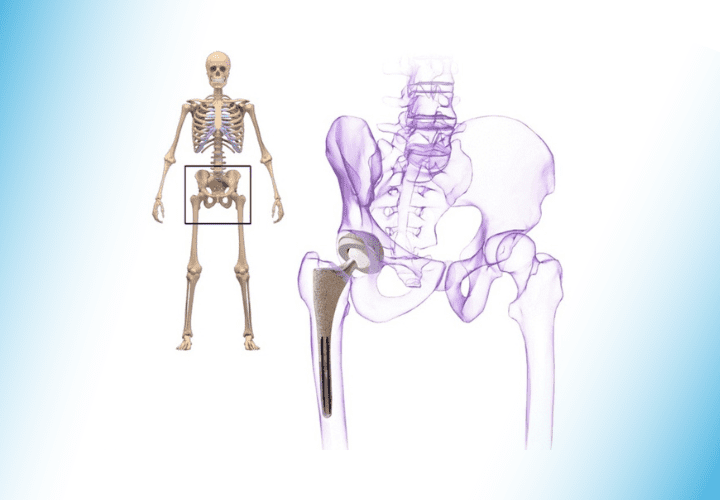Long-term outcome of pelvic reconstruction implants in orthopedic oncology

Long-term outcome of pelvic reconstruction implants in orthopedic oncology
- onco
- March 20, 2023
Pelvic reconstruction is a surgical procedure that repairs the bone structure of the pelvis, which supports the upper body’s weight and protects the reproductive and urinary organs. Pelvic reconstruction is performed on patients who have been in a car accident or who have had bone removal due to cancer. Other reasons for pelvic reconstruction are hip dysplasia or the weakening of the pelvic structure due to aging. Reconstruction after the pelvic tumor involves the restoration of the bone architecture of the pelvic region. Recovery from pelvic reconstruction can be a long and difficult process. Patients have to stay in the hospital for several days or even weeks after the surgery and require physical therapy for their recovery. At Oncoplus Hospital, cancer patients get the best cancer treatment in Delhi. This hospital is well-known for its experienced doctors, staff, and state-of-the-art technology. In this blog, you will read about the long-term outcome of pelvic reconstruction in orthopedic oncology.
Result of Pelvic Reconstruction in Orthopedic Oncology:
The outcome of pelvic reconstruction depends on several factors, such as the patient’s age, the extent of the injury or disease, and the success of the surgical procedure. Normally, the patients who undergo this pelvic surgery experience improvements in their quality of life, like reduced pain, improved mobility, and restored pelvic function. This surgical process is lengthy, and sometimes the patients experience complications after the pelvic surgery.
- The outcome of pelvic reconstruction depends on the patient’s age. If the patient is young, their body can accept the surgical change in their body. But if the patient is old, then it will impact on the recovery of the patient and their overall health.
- If the patient has severe pelvic trauma or more damage to their pelvic structures, then they require more complex treatment, which can impact the overall outcome of the pelvic reconstruction.
- The outcome of pelvic reconstruction depends on the success rate of the surgery. Modern surgical technologies have improved the success rate of the surgery. Surgeons use advanced imaging techniques, like CT scans and MRIs, to give the best possible outcome to their patients.
- Some patients experience side effects after the surgery, such as infection, bleeding, or nerve damage. If these side effects occur, then the recovery process becomes lengthy, and the patient will require physical therapy to restore pelvic function.
What Precautions Should Patients Follow After the Pelvic Reconstruction?
Patients should follow these precautions after the pelvic reconstruction to make their recovery smoother. This surgery is complex and requires a lot of care and attention.
- Patients should not take a bath after the surgery for the first week to cure their wound.
- It is critical that the patient refrain from engaging in any physical activity or exercise until their wound has healed.
- For a speedy recovery, the patients should take adequate rest. Because after the pelvic reconstruction, patients will experience pain, swelling, and limited mobility. Patients should go for a short walk to promote blood flow in their bodies and prevent constipation.
- The patients should avoid sexual intercourse for at least six weeks after the surgery because this will give them time to heal and reduce the risk of infection.
- It is very important for the patients to drink plenty of water, eat fiber-rich foods, and maintain a balanced diet in order to avoid constipation and speed up the recovery process.
- Patients should avoid lifting heavy weights for at least four to six weeks after surgery.
- Patients should wear loose clothing after the surgery to reduce swelling and promote healing.
The Complications Faced by Patients after Pelvic Reconstruction
Some of the complications that the patients faced after the pelvic reconstruction surgery were infections. Patients may experience fever, pain, or redness after the surgery. The other complication is nerve damage, which can cause numbness, tingling, weakness in the legs, or bladder problems. These problems lead to increased urination and decreased sexual function, which affect the quality of life of the patients. In addition to this, patients also experience swelling, pain, discomfort, bleeding, blood clots, or fluid buildup after the surgery.
Recovery after pelvic reconstruction surgery can also be a long and challenging process. Patients have to spend several days or weeks in the hospital and require physical therapy to regain their strength and mobility. Pain, fatigue, and emotional distress can also be common during the recovery period. At Oncoplus Hospital, for orthopedic treatment you can consult the best orthopedic oncologist in Delhi.





Leave a Reply